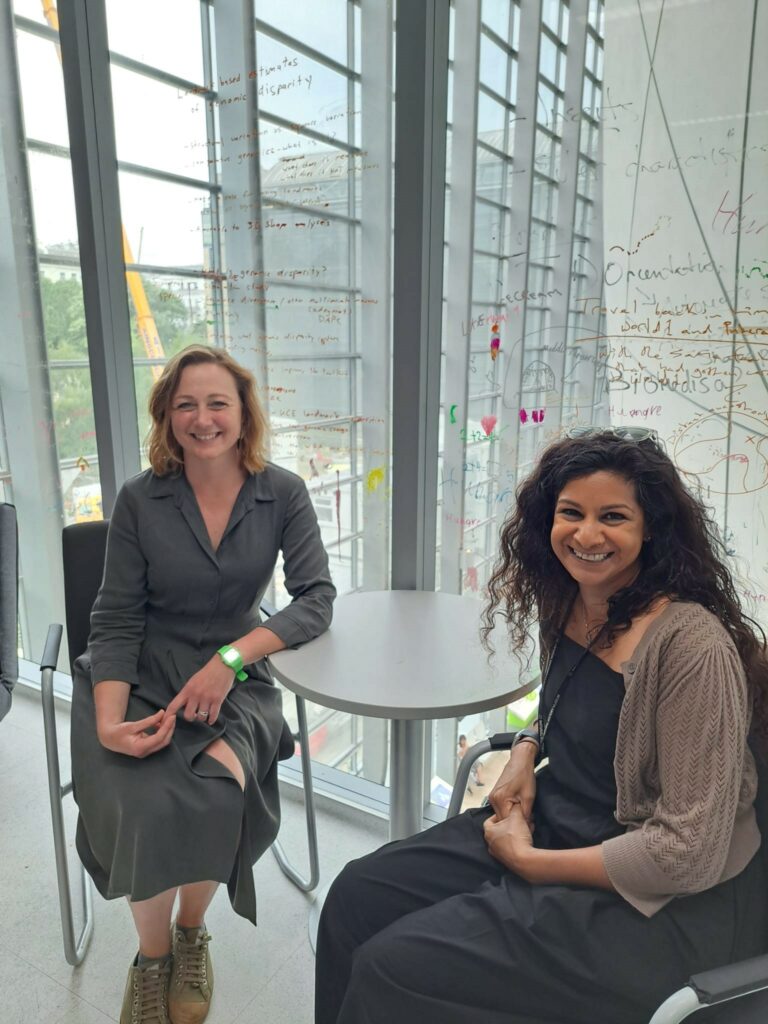Supervising
Supervisors guide and support the fellows in the day-to-day aspects of their fellowships. Each fellow has a primary and a secondary supervisor based at the host organisation.
Supporting their journey
Supervisors play an important role in helping fellows to restart their careers. All Daphne Jackson Fellows have been out of the research workplace for several years and may lack confidence and skills. Supervisors provide vital support and assistance to help them overcome this.
Fellows have at least two supervisors. The primary supervisor takes responsibility for guiding the majority of the fellow’s training and research programme. A secondary supervisor has varying levels of involvement depending on the host, the project and the subject specialism. For some fellowships, additional supervisors may be required – particularly for activities that span several specialisms.
How you can supervise a fellowship
For the majority of our fellowships, candidates seek out supervisors directly. If you have been approached and would like to know more about our Fellowships, please contact us.
There are several points to consider in supervising a fellow:
- You must have experience of guiding students – ideally at PhD level (for our research fellowships) or equivalent experience (for our research technical professional fellowships).
- You must consider what arrangements will be in place should you be away from the organisation for an extended period of time. This could involve another supervisor stepping in to provide cover or sharing the responsibility with additional supervisors.
- In some instances, pressing timescales can influence the progress of a fellowship. You should let us know about any specifics (e.g. seasonality of data collection or limited availability of specialised machinery).
- Being a supervisor involves a significant commitment throughout the fellowship, starting from early in the application process. You will need to:
- help the fellow create a challenging proposal and a retraining programme tailored to their needsset appropriate goals and plan potential research impacts and outcomeshelp the fellow respond to independent peer review comments during the application processconsider whether the fellow would benefit from working alongside researchers in your department or attending advanced lectures, short courses, seminars, research meetings and other in-house training and conferences
- report to us how the fellowship is progressing after the first six months and endorse the fellow’s final report at the end of the fellowship.
- It is likely that the candidate will need to visit you and the host organisation on several occasions before a fellowship is awarded. This allows them to meet other members of staff who they may be working with and to familiarise themselves with day-to-day working practices and requirements.
Careers > restarted.
If you would like to find out more about supervising a Daphne Jackson Fellow please email using the link below
